100 Years
Strategic Initiatives: 2024 – 2027
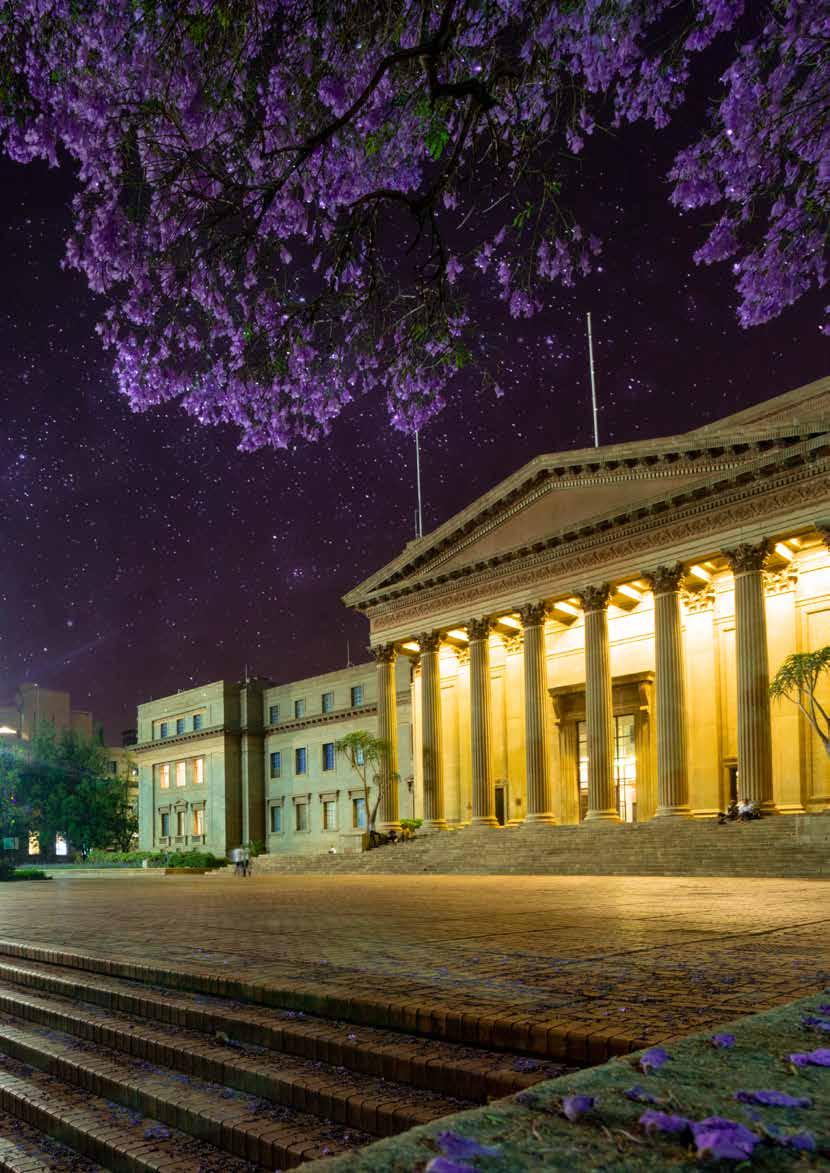

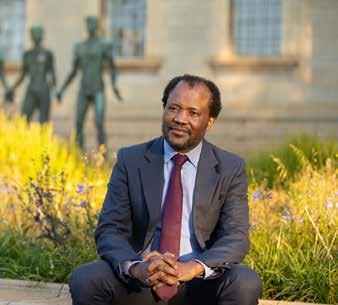
Our Moonshot Moments
We live through a historic period characterised by change, where we are confronted with a myriad of complex universal problems including global change and inequality, energy and water insecurity, crime and corruption, lack of governance and ethics, the intersection of communicable and non-communicable diseases, pandemics, and so on. Yet, this is a fortuitous moment for Wits – an opportunity to envision our ‘moonshot moments’ that could dramatically change society for good.
We can chart a course that can propel us into a new world of discovery and innovation, knowledge-creation and generation, teaching and learning, advancement and social justice, for the good of our generation and the next. But we cannot do it alone. There are three core areas that Wits will bolster in the next 100 years: developing excellent graduates who impact on society; conducting world-class research and fostering innovation; and using our location in the economic heartland of Africa to lead from the Global South.
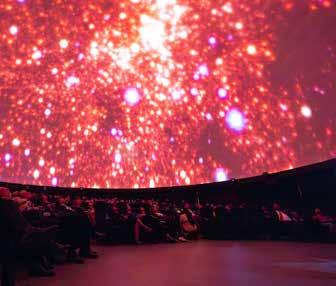

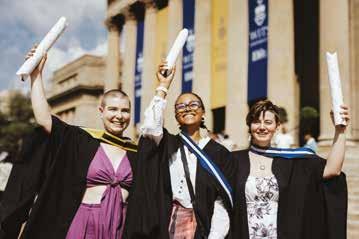
Did you know?
24 575
Student enrolment by Faculty
Did you know?

Deepening Our Understanding of Intelligence and Catalysing Innovation
Universities develop the high level, critical skills, at scale, that drive job creation and economic growth. It is at universities where the best minds from different disciplines can be brought to bear to address some of the key challenges facing society today.
The study of human, animal and machine intelligence, learning and innovation is at the core of Wits University’s strategic plan, and talented researchers are working with young talent and industry partners, to establish a research-led ecosystem that will include the Wits Machine Intelligence and Neural Discovery (MIND) Institute, the Wits Innovation Centre (WIC) and other health tech and fintech nodes, city laboratories and sustainability hubs, and governance, inequality and employability programmes to address the critical issues facing society today.
Wits Machine Intelligence and Neural Discovery (MIND) Institute

The Wits MIND Institute (launched in November 2024), promotes breakthrough scientific research and advanced technology innovation in artificial intelligence. The Institute brings together global interdisciplinary teams in computer and mathematical science, neuroscience, psychology, archaeology, anthropology, philosophy, and policy science to push the frontiers of the scientific understanding of natural and artificial intelligence, while promoting the incubation and commercialisation of innovative technologies through industry partnerships. Collaboration with key industries to create high-value and novel technologies, such as large-scale AI models that are relevant for material science, drug design, astronomy, business intelligence and the like, forms part of defining strategic areas to ensure a collaborative culture that promotes science and innovation. Key industry partners that are partnering with the Wits MIND Institute include Investec and IBM.
Wits Innovation Centre
The Wits Innovation Centre, home of the prestigious $3 million endowed Angela and David Fine Chair in Innovation, serves as a hub for the coordination of innovation activities and drives inspired entrepreneurial and innovative thinking across the University. The Centre works nimbly across disciplines, schools, faculties, institutions and sectors to bring the best minds, resources, technology and infrastructure to bear to create new knowledge, products and services, and to solve real-world problems. The ecosystem includes Wits’ wholly
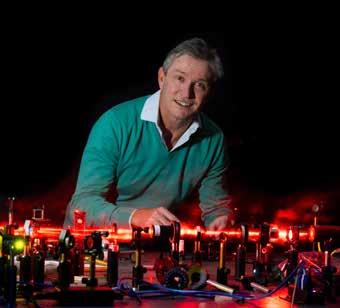
owned entities including Tshimologong (incubator and makers’ space), Wits Commercial Enterprises (commercial research and business development), the Wits Health Consortium (contract medical research); and the Wits Entrepreneurship Hub (students) supported by the University’s structures to safeguard intellectual property, secure patents, and ensure ethical business practices.
Wits Innovation Fund
The Wits Innovation Fund is poised to become a keystone in the realisation of market potential for innovative ideas emerging from Wits University.
Renowned for its leading-edge intellectual environment, Wits is fertile ground from which a wellspring of fresh ideas can emerge - from social upliftment innovation to advanced technology developments. The Wits Innovation Fund aims to propel these ideas from the conceptual stage into viable, market-ready entities, facilitating a smooth transition from ideation to impact.
The Wits Innovation Fund’s mandate highlights a commitment to supporting ventures that are both impactful and sustainable, with a particular focus on ventures that contribute positively to society - such as those aimed at social entrepreneurship. While centred on advancing the interests of Wits’ community, the Fund remains open to external ventures that align with its objectives. Key target sectors include healthcare technology, machine learning and artificial intelligence, education access, fintech, and community development.
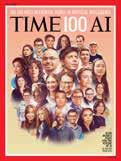
Did you know?

impact on our footsteps of Gail
Patrice
Ramos, Gore, and in society.

FOR GOOD
Some of the key projects in the pharmaceutical and biotechnology spaces include:
Wits conducts discovery research that changes disciplinary thinking; translational or applied research that influences policy and practice; and innovative research that can be taken to the market to generate economic activity.
Resorbable Wound Dressing – An innovative wound dressing designed to revolutionise the healing process for both humans and animals. Ideal for a variety of wound types, this dressing is a leap forward in targeted, responsive wound care technology.
INNOVATION. FOR GOOD
The Wits Innovation Centre plays a key role in encouraging, facilitating, and supporting the connection between research and innovation. It actively engages in strengthening research impact, external engagement, commercialisation, and entrepreneurship.
The Wits DigiMine is a ‘mock mine’ that tests the latest digital technologies underground. the QS 2024 for


434 National Research Foundation (NRF)-rated researchers of whom 26 are A-rated (recognised by peers internationally as global leaders in their fields)
6
Oral Delivery of Peptides – The future of medication delivery is envisioned in this state-of-the-art oral pharmaceutical dosage form. Enhanced with an optional external coating, this dosage offers a pioneering approach to safe, efficient drug release tailored to the human or animal body’s needs.
Department of Science and Technology-NRF Centres of Excellence
WaferMat – Introducing a breakthrough in pharmaceutical delivery – this new dosage form features carbamoyl glycinated chitosan in a unique lyophilized wafer. Perfect for those who need their medication to act quickly, this dosage form sets a new standard in pharmaceutical convenience and effectiveness.
Wits is a leader in digital business and governance, big data, artificial intelligence, robotics, supercomputing, and quantum computing.
It is also home to WitsQ - the Wits Quantum Initiative, an African first, which seeks to advance quantum technologies through research, innovation, business, education, outreach, and ethics.
Wits’ research output has increased by 17% over the past five years and 72% over the last ten years
Some of Wits’ spinout companies include:
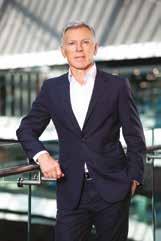
Wits trains the highest number of medical specialists and sub-specialists in South-Africa 97% of Wits authored publications are in international journals
64 specialised research entities are active in Wits
19 South African Research Chairs
Read more at www.wits.ac.za/research winners: Brenner (Literature) and
2 Wits alumni, Pelonomi Moiloa and Shakir Mohamed, were named amongst TIME magazine’s Top 100 Most Influential People in AI for 2023.
SmartSpotQ – A global spinout business from Wits based on incredible innovations by Professors Bavesh Kana and Lesley Scott. Since the onset of widescale molecular testing for tuberculosis (TB) in 2010, SmartSpot has been developing controls to meet the quality needs of TB molecular laboratories across the globe. In ten years, SmartSpot has developed a global footprint in 51 countries, providing health ministries, clinical trial units and private laboratories with diagnostic quality control solutions. SmartSpot is the largest commercial supplier of ISO/IEC 17043:2010 accredited molecular TB controls and provides an accredited companion diagnostic for qualifying the accuracy of molecular diagnostic tests including TB, HIV, SARS-CoV-2, as well as soon to be accredited quality control programmes for influenza, RSV, HCV, HBV, HPV and MRSA. An improved BCG vaccine is also on the cards.
Button Optics – Prolific physics pioneer Professor Andrew Forbes has numerous patents and publications in the field of structured light. His early-stage spinout, Button Optics, is launching a novel communication platform to market which will leverage some of their Wits intellectual property around the generation and diagnosis of structured light, a frontier in physics. His team has also developed safe and effective ways of transporting data and images through light, and how to take photos and images in the dark.
PecoPower – This Wits innovation, led by Professor Willie Cronje is set to light up lives across Africa. This home-grown solar-powered, off-grid solution is radically changing the lives of people who have no access to electricity in local communities. Born out of the School of Electrical and Information Engineering, this

The Machine Intelligence and Neural Discovery Institute is a world-leading interdisciplinary research and training institute with a focus on innovation in data science and machine intelligence.
Wits’ Tshimologong Digital Innovation Precinct facilitates the incubation of start-ups, the commercialisation of research, and the development of high-level digital skills for students, working professionals, entrepreneurs, and youth.
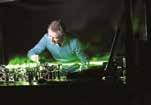
Did you know?


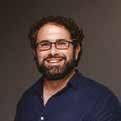
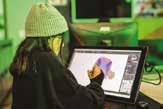
personal consumer grid innovation is a solar-powered home electrical grid solution, which easily integrates renewable energy sources along with batteries and appliances, for the electrification of households in Africa. It is a plug and play modular system that is expandable, to ensure that as a household can afford more solar panels, batteries or 12V appliances, these components are easily added to the system, with no need for a trained person to install them.
Wits researchers in the Structured Light Laboratory have transmitted data and images securely through light.

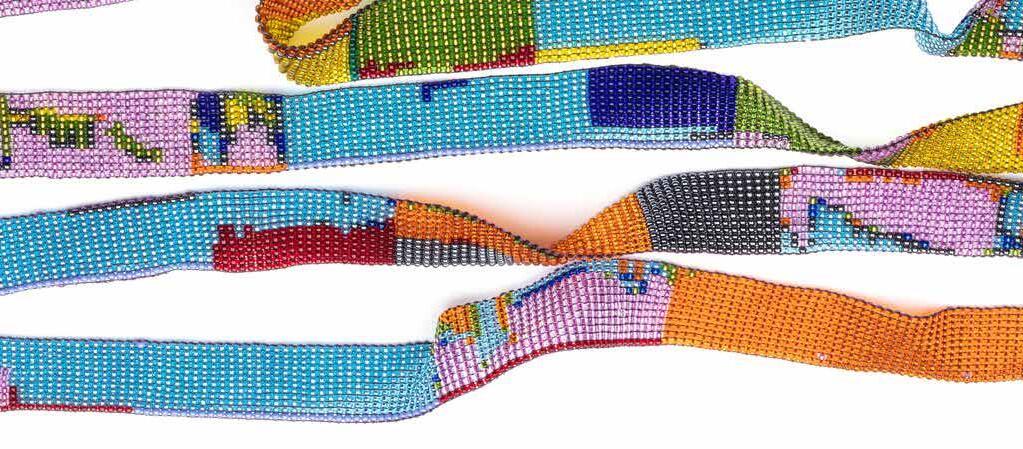
Ensuring Better Health for All
Wits’ health research extends to the prevention, treatment and care of people living with infectious and non-infectious diseases, in hospitals, clinics and communities throughout the country. It has a strong focus on the development and use of innovative health technologies, public health, artificial intelligence and generating solutions to some of the pervasive challenges constraining African health and development. Students serve in the largest clinical training platform in the country, including at key public hospitals like the Chris Hani Baragwanath Academic Hospital in Soweto, and the Charlotte Maxeke Academic Hospital in Parktown. They also train in rural settings at the Wits Rural Campus close to the Kruger National Park.
The Wits Faculty of Health Sciences has over 1 000 research collaborations with global universities and research institutions on all continents. It’s strength lies in its excellent education and training, it’s innovative research and its commitment to saving lives and advancing the public good. The Wits Donald Gordon Medical Centre is the first and only private teaching hospital in South Africa which trains the greatest number of sub-specialists and the Wits Health Consortium – with an annual turnover of R3 billion generated through its extensive contract clinical research and related activities – places Wits as one of the world’s leading universities in terms of the proportion of total income generated through commercialisation activities.
Wits Oral Health Centre and Dental Hospital
Wits has invested more than R100 million into providing a world-class pre-clinical dental training platform on the Health Sciences Campus in Parktown. This significantly expands the teaching capacity of Oral Health programmes and paves the way for a new leading Wits Oral Health Centre and Dental Hospital to be established in Johannesburg. Following the fire at the Charlotte Maxeke Johannesburg Academic Hospital in 2021, the need for the Wits Dental Hospital to be moved to a first-class fit-forpurpose facility has now become even more pressing in order to continue the world-class training of Oral Health professionals and to provide oral healthcare services to 26 000 members of the public in Johannesburg annually. The new Wits Dental Hospital will offer world-class
clinical services and boost dental health research that will attract leading academics, researchers, practitioners and postgraduate students. The success of the newly revamped Wits Zola Dental Clinic based in Soweto, serves as a testament for the potential of this Hospital.
Wits Research Bio Hub and the Wits Infectious Diseases and Oncology Research Institute (IDORI)
The development of the Wits Research Bio Hub at the newly acquired Isle of Houghton Office Park is part of a flagship Wits100 project, signalling the importance and strategic significance for the university. This project aims to position Wits University as a leader in biosciences research, innovation and commercialisation on the African continent. Wits researchers are helping to understand, predict, and contain viruses that affect communities across the globe, model and manage the public health and socio-economic impact, and develop protection, treatment and care regimens. The new IDORI facility located in the Wits Research Bio Hub will develop the capacity to undertake and lead this work. This prestigious institute will entrench the Wits Health Sciences Faculty as the leader in health research, development, the clinical development of vaccines, training and technological innovation in infectious diseases, immunology, molecular medicine, and related disciplines.
Wits Faculty of Health Sciences Library 2.0
The Wits Health Sciences Library is a specialised library that focuses on providing resources and information related
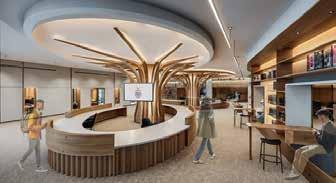

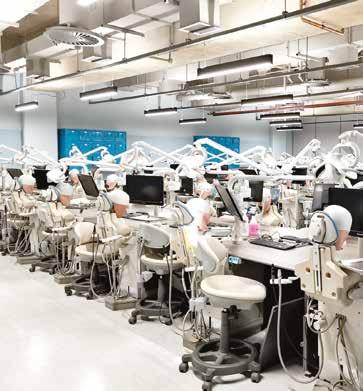
Wits health sciences students receive top-notch training in first-class facilities like the new Phantom Heads Laboratory, the Zola Wits Dental Clinic, the Surgical Skills Lab, and the Wits McAlpine Burns Unit
Students interact with top researchers and specialists across multiple clinical training platforms in public hospitals and clinics, and at the unique W its Donald Gordon Medical Centre, a private teaching hospital which trains the most sub-specialists in the country
A new health sciences research campus will soon be opened in Parktown, as well as a new W its research and training centre at the Chris Hani Baragwanath Academic Hospital in Soweto.

DID YOU KNOW?
Neo Hutiri, a Wits graduate, developed “Pelebox”, a smart locker that cuts down queueing times for patients collecting chronic medication, which was named one of TIME magazine’s best inventions in 2019.
to health and medical sciences. The reimagined library will create a dynamic, accessible, and innovative environment that fosters learning, research, collaboration, and holistic well-being by leveraging the latest advancements in technology and design. It is envisioned as an inspiring space that empowers medical students, faculty and researchers to excel in their academic pursuits while promoting health and wellness within the academic community, focusing on the following three key pillars:
• Collaborative Spaces and Digital Learning Hubs equipped with state-of-the-art technology, interactive displays and multimedia tools, empowering students, and faculty to engage in interactive learning experiences;
• Personalised Learning and Research Support with advanced AI-driven systems integrating individual learning needs and preferences and enabling the library to curate tailored resource recommendations, study plans, and research guides; and
• Expansion of the Health Sciences Archives which will create a dedicated archive section and enable the library to preserve and showcase historical documents, rare books, and significant research materials related to health sciences.

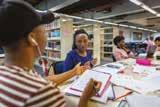
Wits Integrated Oncology Centre


Wits is known for its academic excellence and agility to adapt to blended and online teaching and learning, using the latest pedagogies and technologies. Smart classrooms, future libraries, knowledge hubs, simulation laboratories, innovation precincts, and e-zones are available to students.


The management of cancer requires a multidisciplinary integrated approach. Medical and radiation oncologists, oncology surgeons, radiologists and intensive care healthcare professionals all contribute to the early diagnosis and treatment of cancer. The Wits Integrated Oncology Centre, located at the Chris Hani Baragwanath Academic Hospital in Soweto, will develop a unique environment that significantly complements the care currently offered via the Wits academic platform, where patients can receive early diagnosis, expedited surgical care, systemic therapy and local treatments including the appropriate education, rehabilitation and palliative care if required in one dedicated unit. This Centre will serve as an important resource for research and the training of healthcare professionals for improved cancer care in South Africa and on the continent.
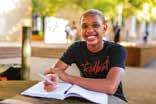
Wits’ new short course offerings via WitsPlus Pty (Ltd) enables access to education and empowers working
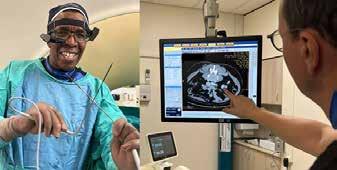

Wits is society discipl active to realGlobal Climate
“Wits c role in emerg engag the econom history in a just econo world, At the analys transfo practices
A Home
The W disabil instituti
The Cent educati world le
1Beat Paediatric Healthcare Data Management and Research App
• The Wits-Edinburgh Sustainable African Futures Programme is an interdisciplinary programme that seeks to advance research capacity amongst African academics and higher educational institutions whilst grappling with the critical issues of sustainable development.
The heart of any society is reflected in how it cares for its children. In public healthcare facilities across South Africa, thousands of children are still denied the medical care that they deserve. This project focuses on enhancing the health and well-being of young patients. Effective medical recordkeeping is crucial for optimal care, research and training, but outdated paper records and fragmented electronic systems often stand in the way. Wits University is revolutionising healthcare data management and research through the 1Beat Application – a tailored digital system equipped with a user-centric, easy-to-navigate mobile app for patient clinical records. Leveraging 1Beat’s data and AI capabilities, forward-looking enhancements to the application include AI-enabled clinical research tools for clinicians, researchers and scientists, and models for administrators, promising to assist in optimising service delivery, research, innovation and training for the benefit of young patients.
Read more at www.wits.ac.za/teaching-and-learning
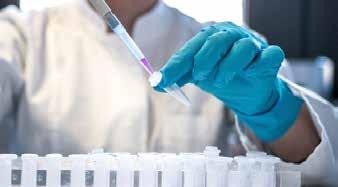
The Emth therap the pub students
Solving Global Challenges and Crises
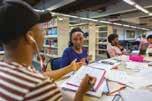


The Earth faces a climate emergency. Wits’ staff are amongst the thousands of scientists worldwide who agree on the urgency of the climate crisis that threatens humanity as well as all other planetary life-supporting systems. Wits academics have led national and international teams urging for action to mitigate against these adverse global changes. Southern Africa is warming at a higher rate than the global average increase owing to climate change, yet Africa will experience the majority of the world’s population growth over the next Century.
Wits is known for its academic excellence and agility to adapt to blended and online teaching and learning, using the latest pedagogies and technologies. Smart classrooms, future libraries, knowledge hubs, simulation laboratories, innovation precincts, and e-zones are available to students.
Questions around the sustainability of our planet, urbanisation, and access to water, food and other resources will need to be answered locally and globally. As one of Africa’s top global universities, Wits is ideally poised to identify, interrogate and address these challenges and to urgently find relevant solutions. Wits has a number of research entities like the Global Change Institute, that are exploring new ideas across a range of disciplines that aim to address some of these critical global challenges.



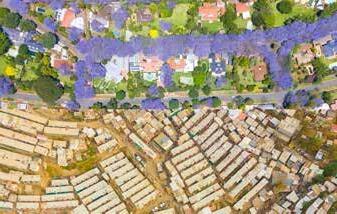
Wits’ new short course offerings via WitsPlus Pty (Ltd) enables access to education and empowers working professionals. WitsPlus Pty (Ltd) provides for a wide variety of programmes and courses that enable learning for good.
Multinational teaching, learning and research programmes
• Afretec is a pan-African network of engineering and technology-focused universities that drives inclusive digital transformation in Africa.



Wits is a catalyst for change that creates hope in society We celebrate the diversity of people, ideas, disciplines, and place, and empower our people to be active social citizens Wits develops innovative solutions to real-world problems from the perspective of the Global South.
Climate and Sustainability
“Wits commits to playing a transformative leadership role in South Africa's response to the climate emergency Through research, teaching, policy engagement and its own practice, using its location in the economic hub of the country, and understanding its history in mining and industry, Wits will play a pivotal role in a just and equitable transition to a net zero-carbon economy for the city, region, country, continent and the world, by 2050 ”
At the centre of this commitment will be ongoing analyses of our own carbon footprint, with a view to transforming the University into a living laboratory for just practices of sustainability. Info: www wits.ac za/csi
The Emthonjeni Centre offers speech and hearing therapy, counselling, and psychotherapy to Witsies and the public, and serves as a training laboratory for students in these fields specialists public its Donald hospital country. will soon be research Baragwanath developed cuts down collecting chronic one of TIME 2019.
Wits Just Energy Transition and Decarbonisation Centre
• The Wits-Edinburgh Sustainable African Futures Programme is an interdisciplinary programme that seeks to advance research capacity amongst African academics and higher educational institutions whilst grappling with the critical issues of sustainable development.
A just energy transition is required to balance social and economic challenges with the environmental imperative to decarbonise. An energy transition involves shifting away from a sole reliance on coal-powered electricity generation, as well as the use of other fossil fuels such as oil and gas on which we depend for transport and various industrial processes, but also to ensure that the following enabling dimensions form part of the transition and are met for net zero goals to be achieved: capital and investment; regulation and political commitment; institutions and governance; infrastructure and innovative business environments; social sustainability, human capital and consumer participation; and an energy system structure that can provide sustainable energy through an energy mix.
Read more at www.wits.ac.za/teaching-and-learning
A Home for All
The Wits Disability Rights Unit caters for students with disabilities and is a model centre for higher education institutions in South Africa
The Centre for Deaf Studies offers support and education to caregivers and families of the Deaf. It is a world leader in Deaf research and education
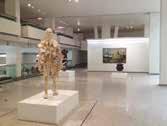
The Wits Just Energy Transition and Decarbonisation Centre, as the first such focused centre on the continent, will capitalise on the competitive and academic advantages that the world-class multidisciplinary teams within the required specialist areas at the University, together with key regional and international partnerships, provide; and will contribute to the successful implementation of the just energy transition and decarbonisation strategy in South Africa and on the continent.
Wits H₂O Institute
Water resources in South Africa are under extreme pressure due to the climate crisis, rapid population growth, deindustrialiation, lack of water infrastructure maintenance etc. South Africans need running water that is safe tor drink, and they desperately need water security, sovereignty and sustainability. The Wits Water Institute will focus on being a post-disciplinary institute with no knowledge silos, involving academics from a diverse background, with a societycentred thought – Water Research. For Good. Wits H₂O aims to play a significant role in advising the South African water sector, government and industry in order to guide everyone through a period of intense challenges over next 50 years. Most critically, the institute centres around people in the water cycle, whilst conducting blue sky, applied and public facing water research, resulting in non-partisan, independent research to inform evidence-based policy and engagement with civil society, industry and government.

Scien explor World and the Centre. Scien public high-tech
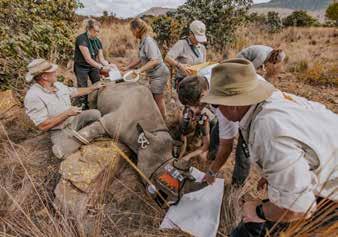
The Wits Rhisotope Project is Saving our Rhinos

societies and economies for more than 120 years, and they aim to demonstrate to current and future leaders that geosciences are key to sustainability and green just transitions for centuries still to come. Wits Geosciences is committed to attracting top scientists to produce industry- and society-relevant research and train students in critical, scarce skills through the establishment of the Next Generation Geoscience Endowment Fund; their Geoscientists will continue to expand the current cuttingedge data produced by the school’s high-end laboratory and geomodelling facilities, by modernising and expanding the Geosciences Centre into a net-zero building that can accommodate increased student capacity; and the team will continue to expand the public-facing outreach and interactive programmes through the development of a state-of-the-art Geoscience Exploratorium, which will become the home of the extensive Wits specimen library, assisting in transforming public perceptions of impact of geoscience in the world.
CHANGING SOCIETY. FOR GOOD CURATING NATIONAL TREASURES. FOR GOOD
Wildlife crime is one of the four major black-market crimes. Professor James Larkin, a Wits scientist and his team have developed a novel way to save rhinos, using nuclear science.


By inserting measured quantities of radioisotopes into the horns of live rhinos, this non-lethal yet powerful solution, aims to radically reduce the demand from end-users and to save rhinos from the very real threat of extinction. Making rhino horns radioactive, reduces their desirability as a commodity. Radioactively treated horns are also more likely to be detected at international borders, making it more likely that smuggling syndicates are exposed, prosecuted and convicted under anti-terrorism laws.


Wits is a catalyst for change that creates hope in society We celebrate the diversity of people, ideas, disciplines, and place, and empower our people to be active social citizens Wits develops innovative solutions to real-world problems from the perspective of the Global South.
Climate and Sustainability
A New Trajectory for Geosciences Education and Research for Southern Africa

The Wits School of Geosciences is the largest and most diverse academic Earth Science Institution in Africa. The school’s invaluable science has shaped Southern African
empowers working enable lea research engineering and drives inclusive
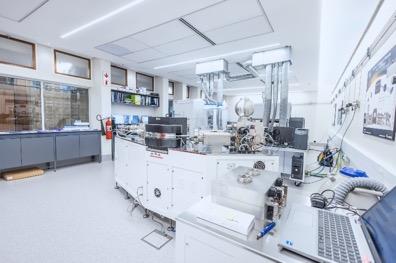
excellence and agility to and learning, technologies. Smart hubs, ecincts, and African Futu ogramme that amongst educational critical issues
“Wits commits to playing a transformative leadership role in South Africa's response to the climate emergency Through research, teaching, policy engagement and its own practice, using its location in the economic hub of the country, and understanding its its will play a pivotal role o a net zero-carbon
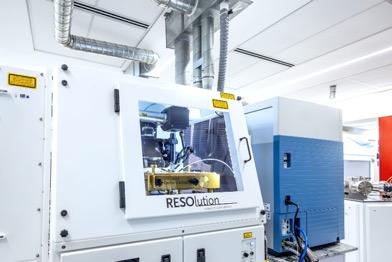
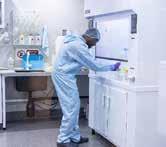
.wits.ac.za/teaching-and-learning
Wits and US-sourced investments, totalling R32 million, have already developed Africa’s most advanced geoscience laboratory facility in 2022 – the Earth Observatory – for Africa-wide research and industry analysis and training.
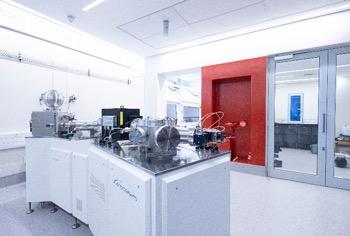

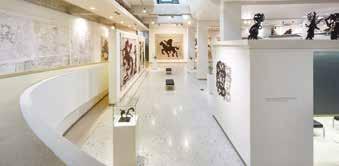
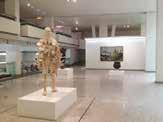


Future Proofing Our National Treasures
Wits’ arts and culture spaces depict the richness of our history, academic endeavours, diversity of disciplines and social interaction The Wits Art Museum has about 10 000 works of African art
Science enthusiasts interested in the story of life can explore the Sterkfontein Caves in the Cradle of Humankind World Heritage Site, the Origins Centre, the Fossil Vault, and the James Kitching Gallery in the Palaeosciences Centre. The Bleloch Geological Museum and the Life Sciences Museum and Biodiversity Centre are open to the public. The worldclass Wits Anglo American Dome offers a high-tech 360o immersive digital experience
Wits is home to thousands of world renowned and priceless collections and an incredible array of scientific, arts and cultural treasures. The Origins Centre, the Bleloch Geological Museum, the Life Sciences Museum and Biodiversity Centre, the James Kitching Gallery in the Palaeosciences Centre, the Adler Museum of Medicine, the Brebner Museum, the Hunterian Museum of Anatomy and the Museum of Obstetrics and Gynaecology are some of the repositories of unrivalled collections that the university preserves, researchers and shares with the academic community and general public.
The Fossil Vault and underground chamber hold some of the world’s priceless faunal, floral and hominid palaeo treasures that enlighten our understanding of human origins and the trajectory of life on our planet.
Health sciences students may find the Adler Museum of Medicine compelling, or may fancy a visit to the Brebner Museum, the Hunterian Museum of Anatomy or the Museum of Obstetrics and Gynaecology.
The Jack Ginsberg Centre for Book Arts at the Wits Art Museum is the largest collection of artists’ books in the southern hemisphere. Donated by art collector and philanthropist, Jack Ginsberg. This world-renowned collection includes more than 3 000 artworks plus thousands of additional items related to the field of book arts.
New, experimental work is always explored at the Wits Theatre Complex, a stone’s throw away from the Chris Seabrooke Music Hall, which is flanked by the Wits Art Museum. The Fassler Gallery and the Anthropology Museum are also important spaces to visit


GOOD
Creating the Library, Archive, and Museum Collections of the Future

pe in ideas, ople to be ve solutions of the adership cy ocation in understanding its pivotal role -carbon nent and the
oing view to atory for just za/csi
tudents with education
nd
eaf. It is a aring Witsies and ry for
The Wits Central Archive, which includes the Historical Papers Research Archive, one of the largest and most comprehensive independent archives in southern Africa, houses over 3 400 collections of historical, political and cultural importance from the mid-17th Century to the present (a prime example being Nelson Mandela’s original papers from the Rivonia Trial – a seminal event in the history of South Africa).
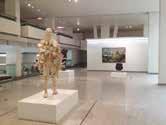


The Archive is an invaluable resource for scholars seeking lessons from our political and social history. The project includes a central facility for the digitisation of artefacts and papers and an inter-institutional network to strengthen the digitisation of thousands of important works – including the Wits Film and Video Departments Archive which contains unique and irreplaceable film and audio material dating back many decades.
Wits’ arts and culture spaces depict the richness of our history, academic endeavours, diversity of disciplines and social interaction The Wits Art Museum has about 10 000 works of African art
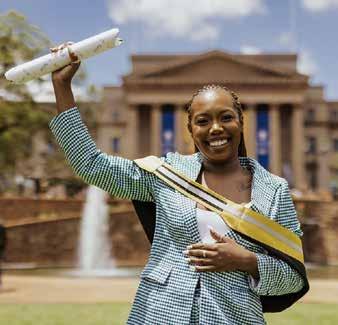
Wits Cultural Precinct
Culture-lead urban regeneration has become globally accepted as a strategy to address elements of city decay. As part of Wits’ efforts to lead the urban renewal of the Braamfontein campus fringes, in partnership with the Braamfontein Improvement District and Jozi My Jozi, creating safe transit and living spaces for more than 15 000 Wits Students located in private residences on the outside of the campus boundaries, the university is rejuvenating the Wits Cultural Precinct – creating a corridor of art and culture to naturally link into the world of science and engineering, and merging culturally rich social interactions with academics and inquisitive exploration. The Wits Cultural Precinct provides an immersive interactive corridor from the Wits Art Museum, to the Wits Chris Seabrook Music Hall, The Nunnery, the Wits Theatre, the Amphitheatre, the Downstairs Theatre, crossing paths with the Schools of Arts, Chemistry and Physics, and arriving at the Wits Great Hall where all graduates share fond memories of their capping ceremonies and attending academic, thought leadership and culture-led events.

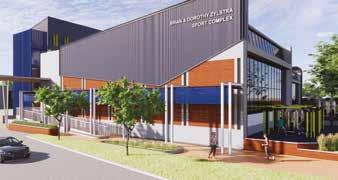
Wits students can choose from over 30 sporting codes including soccer, rugby, and hockey Students have participated in national teams and have represented South Africa at the Olympic Games and elsewhere In 2026, the new R250 million Wits Brian and Dorothy Zylstra Sports Complex will open
This integrated facility for training, research, and clinical practice promises worldclass therapeutic facilities, an aquatics centre, and a residence for elite athletes





Academic Athlete Scholarships
At Wits University, our blood is blue and gold. In our stadiums and pools, on our fields and courts, and across physical and virtual multi-sports terrains, our elite academic athletes exemplify the academic excellence for which Wits is internationally renowned, and they embody an ethos of holistic intellectual and physical development, for good.
The new state-of-the-art, high-performance facility, the Wits Brian and Dorothy Zylstra Sports Complex, will deliver world-class infrastructure for elite athletes, coaches, sports and therapeutic scientists, and sporting events. Offering Witsies and South African sports people the opportunity to live, breathe, learn, play, transform, and research sport.

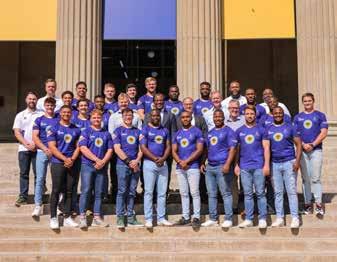
The Zylstra family with the 1st Rugby Team
Through bespoke Wits Sport Scholarship Endowments, the university aims to sustain and advance the level of excellence achieved by our elite athletes, that also deliver well-rounded citizens to the world through a full programme of academic support.
Wits Rowing
The resurgent Wits Rowing Club, counted amongst the oldest “boat clubs” in the university sport sector of South Africa, is strategically working at regaining and maintaining its rightful place on the podiums of regional, national and international competitions. Wits Sport’s strategy to develop the Rowing Club back to professional and elite competition levels starts at developing the current cohort of keen beginner and amateur rowers into focused, skilled rowers, by providing them with the necessary equipment (racing boats and oars – eights, fours, quads, doubles, pairs and sculls); the means to professionally travel with all their equipment from training camps to meets with the appropriate boat trailers and vehicles; appointing professional coaches; establishing a Wits Rowing Scholarship Fund to use for the recruitment of top-
performing rowers from feeder schools; and developing an indoor training facility with state-of-the-art ergos and two rowing tanks within the Wits Brian and Dorothy Zylstra Sports Complex.
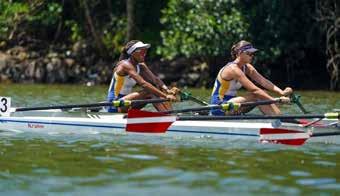
Witsies Developing the Next Generation
Throughout our history, Wits has produced local and global leaders across civil society, business, health and politics. We have transformed lives by developing people from marginalised communities and equipping them to lead society. The future of our country and our continent depends on our ability to continue to nurture the next generation of leaders. We will enable the best and brightest to access our institution so that they can continue Wits’ tradition of making an impact in our world.
Talented postgraduate students and postdoctoral fellows are vital to the creation of the new generation of scientific professionals that will allow us to remain competitive. Wits has been enrolling more postgraduate students in order to develop the high-level skills needed to move South Africa forward.
At the heart of the university are our students. Invest in them to ensure their success contributes to a bright future for South Africa and the continent.
Did You Know Wits is Home to Four Nobel Prize Winners?
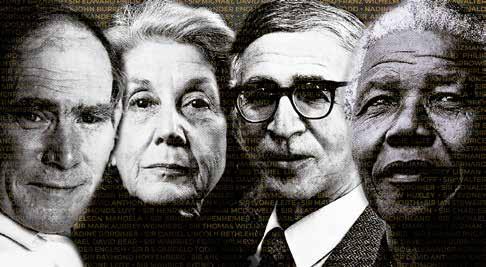

In the Footsteps of Legends
We build on the legacies of great Witsies who laid the foundation of a world-class university over more than a century. Wits is the home of change makers who impact on our world, For Good. Our students walk in the footsteps of luminaries like Wendy Appelbaum, Koos Bekker, Robbie Brozin, Dr Judy Dlamini, Ruth First, Bruce Fordyce, Adrian Gore, Donald Gordon, Ivan Glasenberg, Gail Kelly, Brian Joffe, William Kentridge, Mervyn King, Sibongile Khumalo, Michael Katz, Natie Kirsh, Stephen Koseff, Wendy Lucas-Bull, Thuli Mandonsela, Patrice Motsepe, Maria Ramos, Robert Sobukwe, Duncan Wanblad, Stanley Bergman, Charles Goldstuck, Rodney Sacks, Hersch Klaff and Hilton Schlosberg, and generations of others who have left a legacy in society.
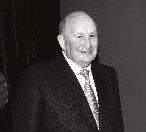











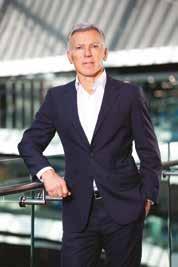




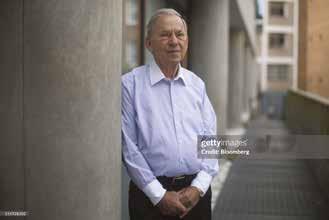
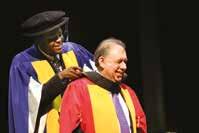




Broad-Based Alumni Support
Wits University has an enviable cohort of over 200 000 highly successful graduates in all fields of endeavour around the world. Harnessing the support of these alumni plays a critical role in ensuring the financial sustainability of the University by contributing to a broadening of the University’s donor base. In particular, this includes the Wits Annual Fund, a discretionary endowment fund, that continues to grow over time, with the proceeds earned used by Wits where it is most needed.
Several alumni and donors have established Family Trusts, Endowment Funds and Bequests, large and small that have helped to shape the University.
Planned Giving (bequests) from an Estate can make a substantial contribution to the future of the University. Gifts can be designed for any project or purpose to support Wits. You may also wish to create a legacy in the name of a love one, such as a scholarship for female architecture students created by in the name of one of that department’s first female graduates –the Felicia Johnston Memorial Scholarship, set up by her family after her passing.
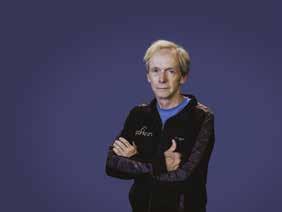
Answering Our Call
Through gifts and sponsorships, we invite you to join our many donors and sponsors across the world who have already supported Wits, and insodoing who have helped to change the world, for good. Any form of support that you give, makes a huge difference in helping Wits to realise our ambitious goal of raising R5 billion by 2027.
To learn more about the Wits100 campaign and current developments, please visit wits100.wits.ac.za. The website also covers additional investment opportunities.
Should you wish to discuss or enquire about a bespoke gift or sponsorship, please call or send an email to:
Peter Bezuidenhoudt
Director: Development and Fundraising
Tel: +27 11 717 9701
Mobile: +27 83 305 5588
E-mail: peter.bezuidenhoudt@wits.ac.za
Yael Horowitz
Wits USA Development Specialist
Mobile: +1 (425) 330 9831
E-mail: yael.horowitz@wits.ac.za

Significant Wits100 Centenary Campaign Donations and Sponsorships to Date
Three major Mastercard Foundation projects totalling R500 million
R200 million for the development of the Wits Brian and Dorothy Zylstra Sports Complex
$10 million to rename the School of Accountancy in honour of former head Professor Margo Steele
$10 million endowment to support postgraduate students in need Natie Kirsh
R87.5 million towards Wits 100 AngloGold Ashanti Legacy Scholarships AngloGold Ashanti
R70 million towards the development of the Roy McAlpine Burns Unit at the Chris Hani Baragwanath Hospital Roy McAlpine Foundation
R55 million to repurpose the Wits Planetarium into the multidisciplinary Wits Anglo American Digital Dome
R50 million to establish an endowed Chair in Innovation to drive researcher-led innovation
Angela and David Fine Chair in Innovation
R50 million for the Wits Southern Centre for Inequality Studies
Ford Foundation
R50 million student support endowment to rename the Sibanye-Stillwater Innovation Bridge Sibanye-Stillwater
R40 million for the Wits Bushveld Geology and Metallogeny Research Chair (BUGEMET Research Chair) African Rainbow Minerals, Dwarsrivier Chrome Mine, Northam Platinum, Rustenburg Platinum, and Sibanye-Stillwater Platinum Mines
R35 million for the Wits Machine Intelligence and Neural Development IBM Industry Solutions Laboratory
R25 million for the Wits Investec Chair in Artificial Intelligence and Sustainable Business Transformation
R22 million for the Advanced Surgical Skills Lab to train specialists and sub-specialists in the health sciences
Philips, Netcare, Medtronic and Karl Storz
R20 million to support strategic postdoctoral studies in the Faculty of Engineering and the Built Environment African Rainbow Minerals
R20 million to support the Future Ecosystems in Africa programme Oppenheimer Generations Trust
R16 million from the Lamberti Endowment Fund
R15 million for the Zola Dental Clinic in Soweto Bergman family
R15 million for the Claude Leon Chairs in Water and the Environment Claude Leon Foundation
R14,5 million to purchase state-of-theart analysis equipment in Geosciences
Anonymous donation
R12 million endowment to support law and animal, plant and environmental studies Tellus Foundation
R10 million endowment to support top ‘sportspeople studying science’ Smollan Foundation
A R10 million bequest for palaeosciences
Anonymous donation
R9 million endowment to support students in Architecture and Planning Reinheimer Foundation
R6 million bequest to support top history students and cricketers Professor Bruce Murray
Significant donation for the Jack Ginsberg Centre for the Book Arts Jack Ginsberg
Significant donation for the Wits Chris Seabrooke Music Hall Chris Seabrooke
Significant support from international philanthropic foundations Mastercard Foundation, Ford, Carnegie, Gates, Kresge and Open Society
Support from South African based philanthropic foundations
Raith, Bertha and Albert Wessels
R1,5 million gift to support students in need former SRC President Rex Heinke
R1 million gift to Female Academic Leaders Fellowship Endowment Fund
Wits Chancellor, Dr Judy Dlamini
More than R400 million in funding was received for Wits Research Chairs, Centres and Institutes from 2018 to date; of which approximately 30% contributes to bursaries and scholarships for undergraduate and postgraduate students, and postdoctoral fellowships, within each project
• Wits Centre for Applied Legal Studies -
The University of the Witwatersrand Fund, Inc. (USA)
The University of the Witwatersrand Fund, Inc., is an independent, non-profit corporation chartered under the laws of New York State, and recognised by the US Internal Revenue Service as a 501(c)(3) tax-exempt corporation. In compliance with IRS regulations, the Board of Directors of Wits Fund maintains complete discretion over allocation of donations to Wits University. Donations to Wits Fund qualify for income tax deductions in the United States of America to the limits covered by the law.
CALS – R93 million
• Wits Centre on African Philanthropy and Social Investment (CAPSI) – R60 million
• Wits Donald Gordon Medical CentreR42 million
• Wits Sibanye-Stillwater Digital Mining Laboratory (DigiMine) – R37 million
• Wits Roche Chair for Precision Medicine and Genomics in Africa – R31 million
• Wits Southern Centre for Inequality Studies – R30 million
• WBS BCX Chair in Digital Business –R21 million
• Wits Nedbank Chair in Climate Modelling - R20 million
• Wits Standard Bank Chair in Africa Trust Infrastructures – R15 million
• Wits African Energy Leadership Centre (AELC) – R14 million
• Wits Exxaro Chair in Global Change and Sustainability – R10 million
• Wits FirstRand Foundation Chair in Financial Data Science – R10 million
• Wits Absa Chair in Future Energy –R6 million
• Wits INSETA Chair in Insurance Education (catalytic project) – R6 million
• Wits Sappi Research Chair in Climate Change and Plantation Sustainability –R5 million
• Wits Hatch Africa Chair in Mechanical Engineering – R5 million
• Wits PPS Chair in Health Economics –R5 million
• Wits Shell Centre for Reflection Seismology – R5 million
• Wits Caxton Chair of Journalism –R3 million
The Wits Health Consortium, is a whollyowned company of the University of the Witwatersrand, which conducts world-leading research, manages donorfunded activities, pursues entrepreneurial innovation in health and supports clinical trials, to the value of more than R3 billion in annual turnover. More than 80% of this funding is from major US-based Foundations, Grant Agencies and Medical Research Entities, underpinning the global confidence of major investors in the University and its entities.
Chair: Stanley Bergman
Vice-Chair: John Teeger
President: Jane Levy
Vice-Presidents: Jonty Joffe, Cliff McMillan and Professor Teboho Moja
Treasurer: Robin Fryer
Board: Stephen Back, Balungile Belz, Natalie Brown, Professor Marting Colman, Bruce Hubbard, David Jammy, Indran Naick, Professor Hazel Sive, Lindiwe Tardif, Dr Anthony Wilson-Prangley
Vice-Chair Emeritus: David Schneider
Wits US Representative: Nooshin Erfani-Ghadimi Wits US Development Specialist: Yael Horowitz

